Sectarian shadows and civic light: narratives from Baalbek
25.08.2025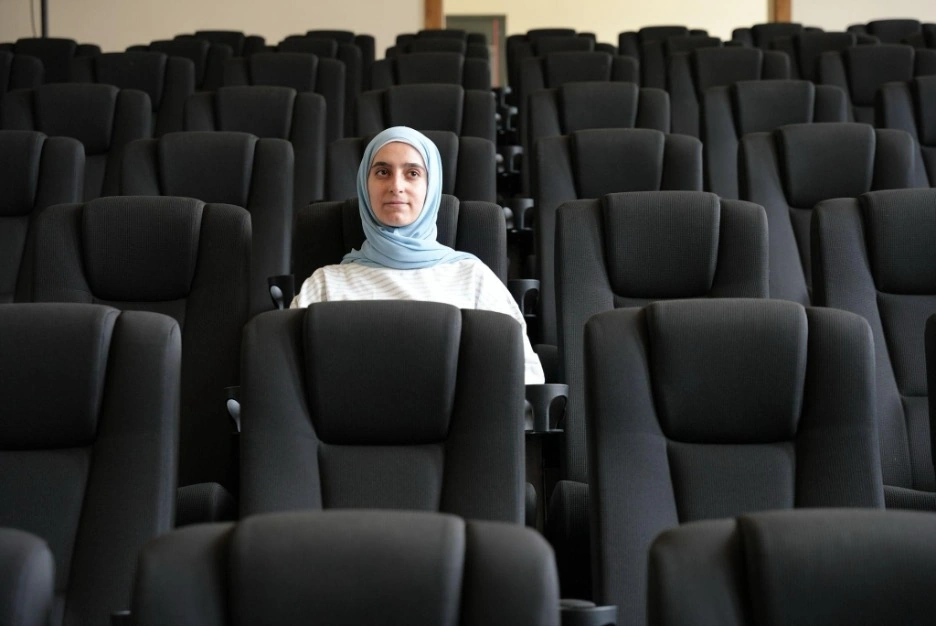
About
Pseudonym:
Marie
Age:
25
Nationality:
Lebanese
Marital status:
Single
Work status:
Working as a nurse
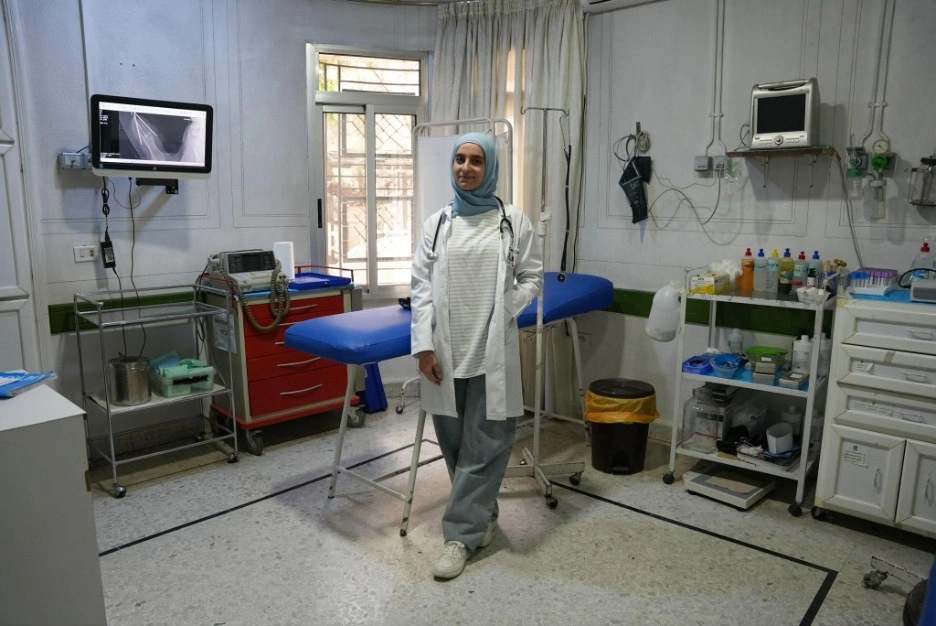
Civic engagement
I used to be very active in NGOs and civic work, especially around election periods—contributing through data entry and mobilisation efforts. However, because of my full-time job as a nurse, I’ve become less involved more recently. Activism requires a lot of time and energy, which I currently don’t have. I used to attend cultural events and political meetings, but I can no longer commit due to my long working hours.
Places like the public library and Al-Liqaa’ Al-Thaqafi ('The Cultural Gathering' – a social and community-based space in Baalbek city) were once vibrant hubs for civic engagement, but activity in these spaces has also declined.
Things have been grim and deteriorating in Lebanon over the years—economically, politically, and socially. Still, I hold on to hope. I continue to support change, non-sectarianism, and efforts to improve life in Baalbek and Lebanon as a whole. Although we have yet to see any meaningful improvements, I choose to remain hopeful about the newly elected president and Council of Ministers.
We must stay optimistic if we want to see real change. Even if we fail repeatedly, we need to keep working toward change. It is essential to support every initiative that serves the people—especially those that are independent and not politically affiliated.
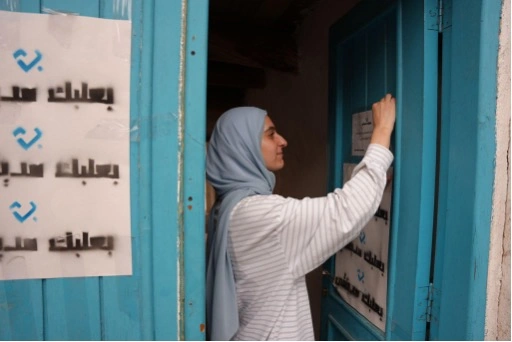
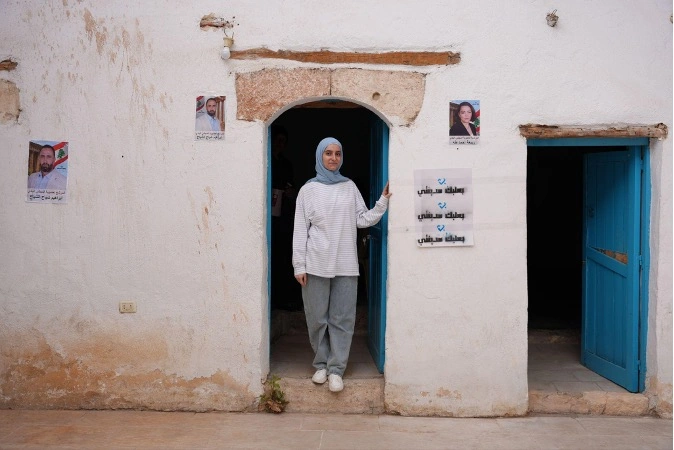
Municipal elections
When elections approach, municipalities start repairing roads and making improvements—which is a good thing—but it’s also disheartening, because we know they only do this to attract more votes. The city remains neglected for years, and only sees these improvements when local or parliamentary elections are approaching.
In the recent municipal elections (held in April 2025), a new wave of independent candidates emerged under a political list called Baalbek Madinati ('Baalbek is my city'). This list includes trustworthy individuals, many of whom are women and youth, as well as candidates with disabilities—people who all seek to bring positive change to Baalbek. They are non-sectarian and do not follow Hezbollah, unlike most of the usual candidates in the city. These individuals love Baalbek and have a genuine vision for change. It gives us hope to see educated candidates striving to restore Baalbek's beautiful image. Baalbek Madinati even has an office next to the Baalbek Ruins, symbolising a more civic-minded approach to politics.
As I expected, they did not win any seats in the municipal elections. However, there was a good turnout for Baalbek Madinati—around 35%—which is quite promising. I was devastated when I saw Hezbollah supporters celebrating after their win, while Baalbek Madinati supporters were posting yellow hearts (a symbol of love for Hezbollah in Lebanon’s internet culture) to show that they still care about the people of Baalbek.
The most devastating part, unfortunately, is that our city has not—and likely will not—let go of sectarianism.
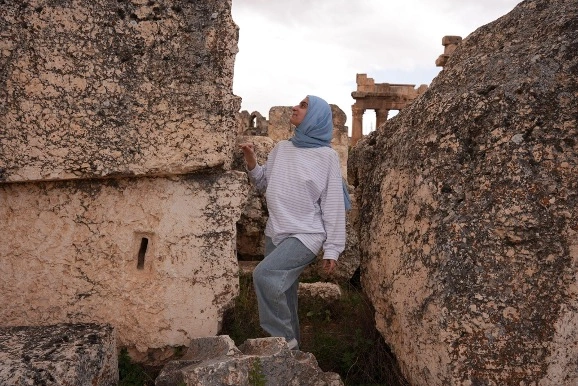
The challenges of political sectarianism
In fact, sectarianism has increased significantly in Baalbek—and in Lebanon more broadly—following the most recent Lebanon-Israel war (which began in 2024) and the fall of the Assad regime in Syria. Every time we sit down to talk, the conversation inevitably turns to elections, war, or Syria. Sectarian discourse is becoming more dominant in every social setting.
Hezbollah has grown more rigid, leaving little to no room for alternative opinions. Its supporters are now trying to reinforce their strength through songs, media, and post-war narratives of victory. Even within my own family, some members used to support Hezbollah—but that support has faded, especially after the changes in Syria. We were relieved when we believed Hezbollah’s influence and power were declining—or so we thought.
If there is another war with Israel, it might be the only way to bring an end to Hezbollah’s power and influence once and for all. However, we sincerely hope it does not come to that. We hope that the state will eventually take control of all weapons, and that, over time, stability will return. If the state asserts its authority, people will feel less anxious. Sectarianism will likely decrease and the threat of another war will diminish. You can already see fewer political posters and slogans along main roads, especially in Beirut—a small but promising sign.
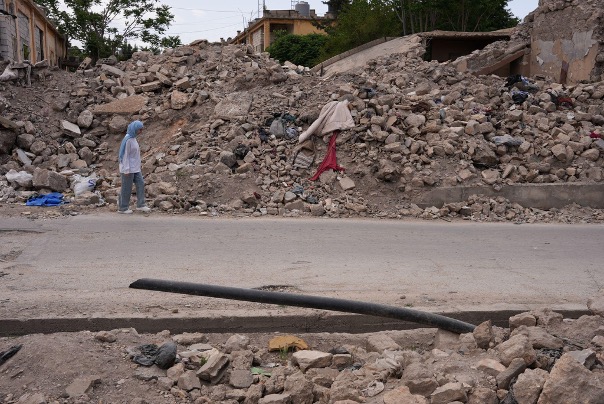
Hezbollah's power has somewhat declined in Lebanon since the war, and they no longer dominate the country as they once did. However, they still maintain strict control over their strongholds—such as Baalbek—and they continue to dominate the municipalities in these areas, with most votes going to them. Many people believe that nothing will change, and it is hard to remain optimistic in the face of such a status quo.
Even though they were weakened after the war, Hezbollah still holds real power within their communities and across Lebanese politics. In Baalbek, their influence remains visible: Hezbollah flags, political posters, and religious symbols dominate public spaces—especially in the lead-up to elections—as a way to reinforce their grip over the city.
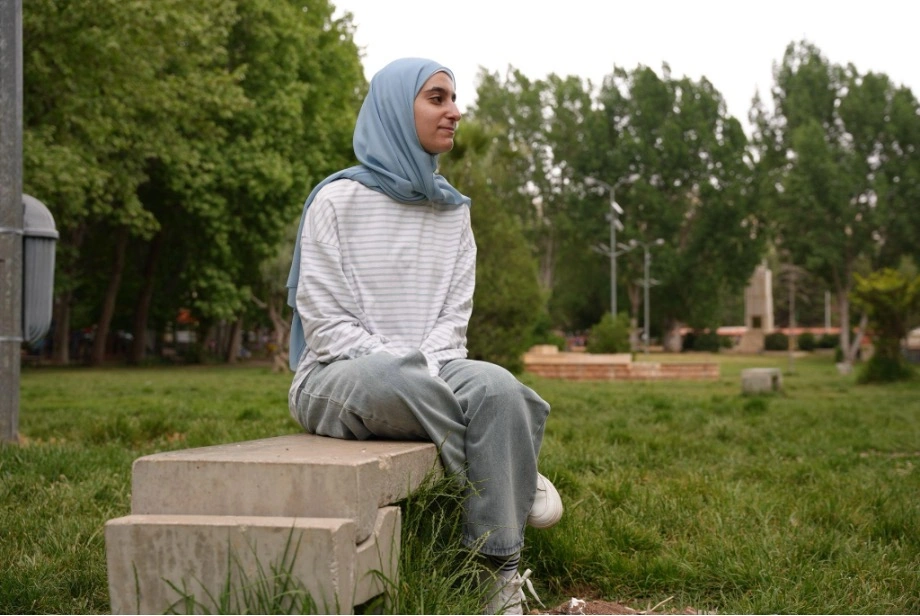
Public spaces
Contrary to this imagery of power, Baalbek has seen little to no development or improvement over the years. Organisations like LOST [The Lebanese Organisation for Studies and Training – one of Lebanon’s largest NGOs and headquartered in Baalbek] have made efforts to improve the city’s infrastructure and public spaces, but these efforts fall short without real and sustainable support from the municipality.
Public spaces in Baalbek are already limited, and the few that do exist have been neglected, becoming unsafe—particularly for girls. Spaces like Ras El-Ein (a public garden) are now mostly used by Syrians, while Lebanese residents feel they have no accessible public spaces of their own.
We hope to reclaim and expand public spaces in our city, and to create more opportunities for youth engagement and open conversations around politics, sectarianism, and social life in Lebanon. These changes could foster greater development and opportunities for young people. However, with the same sectarian politicians holding power at both the local and national levels, it is hard to see how this can happen. None of the political parties has shown any real interest in investing in this country or in meaningful change.
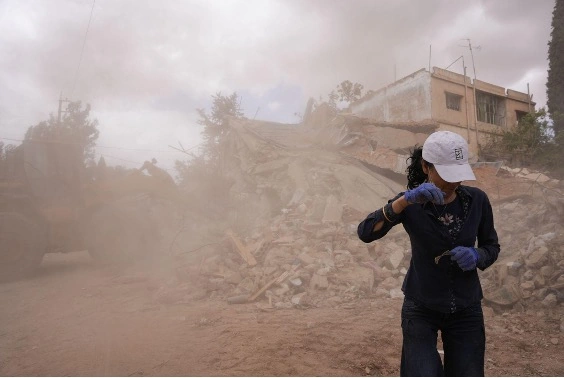
Living in constant fear
However, the scariest and most intense thing we are living through is the constant fear of war in Lebanon—especially since Baalbek is always one of the main targeted areas. Hezbollah continues to express solidarity with Gaza and the Assad regime in Syria, but who is going to support us? We cannot endure another war. Israel has advanced technology and military power, which Lebanon lacks.
During the 2006 Lebanon-Israel war, the destruction was immense. It was too dangerous to stay in our home, so we fled to Syria. Even though I was a small child, I still remember the devastation—there is even a photo of me standing near the ruins.
In the most recent war with Israel, Hezbollah seemed to be the direct target. This time, we stayed home and did not flee, but the fear was constant. The threat of war never disappears. Lebanon is caught between two impossible options: normalization with Israel or living under the constant threat of war. The state appears unwilling to pursue either path, leaving us in a perpetual state of insecurity.
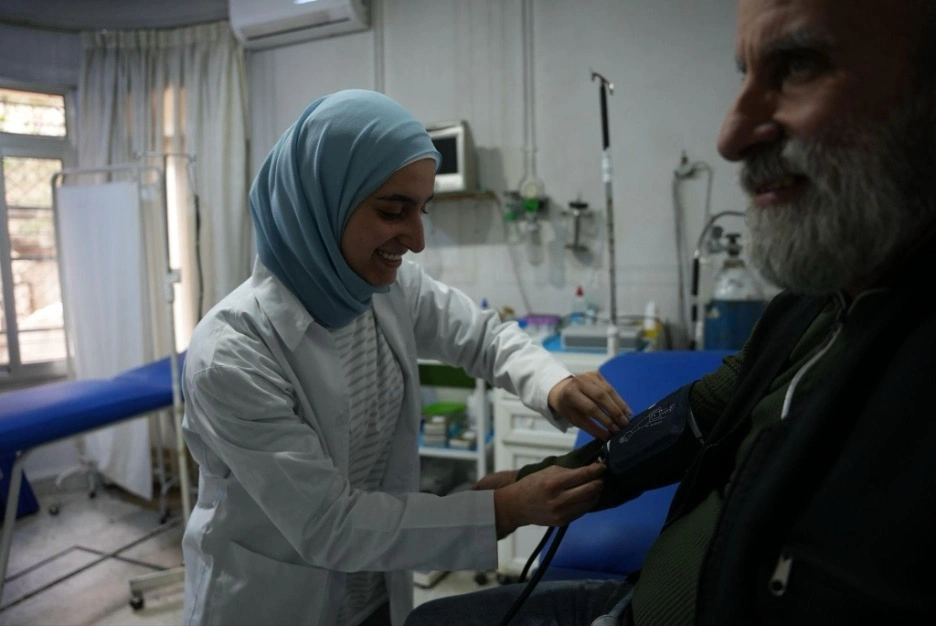
Working as a nurse during the war
We were deeply affected by the war. Despite the danger, we were forced to continue working—especially those of us in the medical field. Many of us tried to avoid areas affiliated with Hezbollah during our daily commutes. My father constantly warned me not to go out, and urged me to quit my job altogether, fearing for my safety every time I stepped out of the house.
We were terrified, especially with a Hezbollah health center located nearby. Even visiting relatives in high-risk areas (Shia-majority neighborhoods considered Hezbollah strongholds) felt dangerous. I still remember wearing my nurse’s uniform—it became a symbol of how precarious life was at the time.
Even now, after the war has ended, we rarely go out. The mental toll is significant. Something as simple as going to the store for groceries feels stressful. We live in a constant state of worry. My mother was even injured during one of those outings to buy household items during the war.
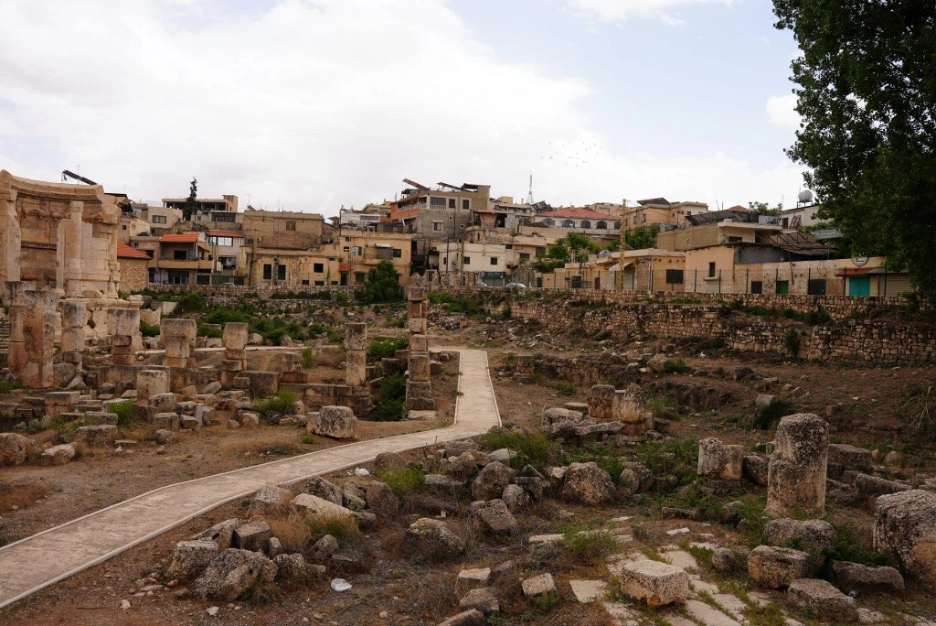
How Baalbek changed during the war
What saddens me the most is that Baalbek—my city—is no longer the place I once knew. Areas like Ras El Ein (public garden), once full of life with restaurants and cafés surrounding it, are now shut down. Baalbek feels run-down and desolate. Israeli strikes destroyed several heritage landmarks, along with the cafés and gathering spots we loved.
When I walk through the streets of Baalbek, it feels unfamiliar. The places I cherished are gone. I have started to avoid going out in the city—not because of fear, but because it is painful to see what it has become. It breaks my heart.
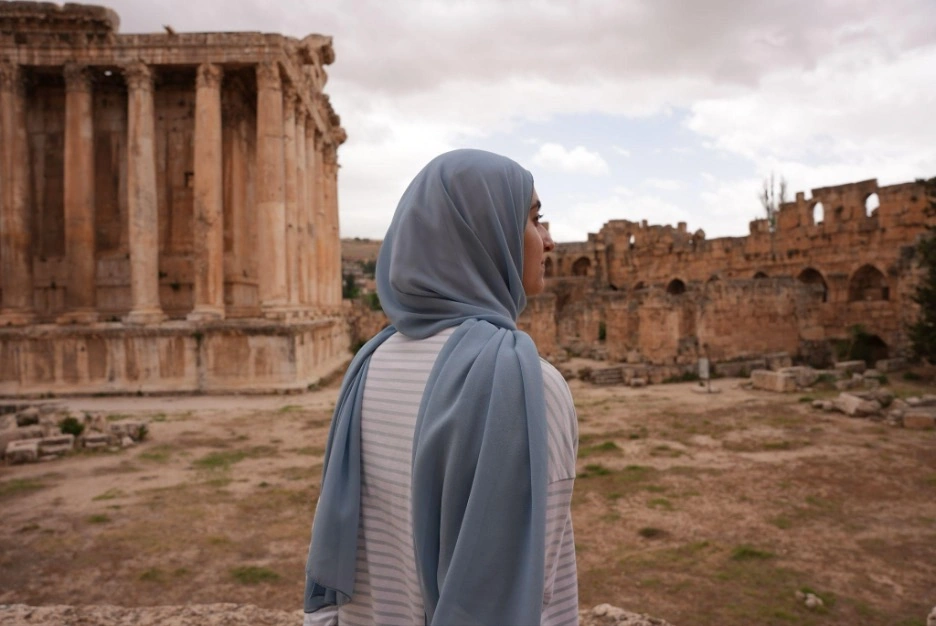
Hope in Baalbek
Both the negative and positive aspects of life in Baalbek should be acknowledged. For instance, the Baalbek Festivals (annual cultural and musical events that take place at the historic Baalbek Ruins) are a vibrant cultural event that brings people together. Many young people—especially women—are also engaged in creative initiatives, such as producing handmade crafts and running small businesses, which they sell to tourists during the summer (the high tourism season) or at local events organized by the Lebanese Organization for Studies and Training (LOST). These moments reflect a lively and hopeful side of Baalbek.
During Ramadan, for example, we see beautification efforts and festive decorations, particularly in areas like the Baalbek Community Farm—a public safe space provided by the LOST organization (it is also a unique hub that supports farmers across the Baalbek-Hermel region, offering them essential resources and assistance). These community-driven initiatives bring people together and breathe life into the city’s streets.
Marie is a 25-year-old Lebanese woman from Baalbek. She joined the Gender and Adolescence: Global Evidence (GAGE) participatory research programme in 2019, which marked a turning point in her civic and political awareness. After leaving formal education at the secondary level, Marie pursued vocational studies in nursing. Inspired by her experience with GAGE and later civic education initiatives that emerged in the wake of Lebanon’s 2019 anti-government protests, Marie became actively involved in local NGOs and youth-led programmes focused on political rights, activism, and sectarianism. She co-founded a youth centre with seed funding won through one such programme, creating a space for political dialogue and youth engagement in Baalbek. While she remains committed to the cause of change, her civic involvement has since declined due to the closure of the youth space (caused by funding cuts) and the demands of her full-time job as a nurse.
In this photostory, Marie shares her personal reflections on civic life, war, and political change in Baalbek, Lebanon. Drawing on her journey from youth activism to professional life as a nurse, she recounts the highs and lows of civic engagement in a city marked by deep sectarian divisions, economic neglect, and political stagnation. From founding a youth centre to living through war and witnessing the decline of public spaces and cultural life, Marie offers a powerful and intimate portrait of what it means to hope for change in a place where it often feels out of reach. Her story sheds light on the lived realities of young people in Lebanon—caught between activism and survival, and between dreams for a better future and the harsh weight of the present.
Details
Country
Lebanon
Audience type
Young person
